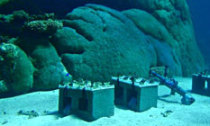
WA’s most renowned coral reefs, including Ningaloo Reef, are not as protected as scientists previously thought, with new research revealing warmer water temperatures have reduced coral growth and survival rates. This reduced growth means Western Australian corals may become more vulnerable, since the South West coast is a ‘hot spot’ for ocean warming, with temperatures rising faster than other parts of the Indian Ocean.
UWA PhD student Taryn Foster investigated the growth of three coral species— Acropora pulchra, Pocillopora damicornis and Goniastrea aspera —at Ningaloo Reef in the north, the Houtman Abrolhos Islands in the Mid West and Marmion Reef in the south near Perth.
Ms Foster measured coral growth from 2011–2013, a time when water temperatures were unusually high.
This period followed the state’s most severe marine heat wave in 2010–2011, when ocean temperatures rose by up to three degrees for an extended period. The heat wave produced a bleaching event where stressed corals expelled the algae naturally living in their tissues.
“The research is showing that WA corals are vulnerable to temperature stress and while that was shown in the heat wave in 2011, this study is showing ongoing reduced growth rates two years after the bleaching event,” Ms Foster says.
Corals grow by calcification, with previous research showing calcification rates two to five times higher in winter than in summer, but Ms Foster’s study did not reflect this seasonality.
“The lack of seasonality was one of the most surprising findings,” Ms Foster says.
“The summer temperatures [in 2011–2013] were too warm for species to flourish.”
Ms Foster says while the corals looked healthy, their poor growth rates reflect thermal stress.
In addition, normally fast-growing temperature-sensitive coral species had reduced growth and survival rates, compared to slower-growing but more robust species.
“Different species have different responses, and that’s important in terms of a community structure. The more resilient the species is to thermal stress, the more it will be able to outcompete more temperature-sensitive species.”
Reef-wide implications
“The coral is a habitat provider, so [loss of the reefs] has implications for all the animals that rely on the reef for habitat and as a food source,” Ms Foster says.
“And it’s not just the animals it provides protection for, but also other ecosystems”.
“In WA especially, which has such big swells offshore, the coral reefs provide protection for the coastline and allow ecosystems like seagrass meadows and juvenile fish nurseries areas to establish.”


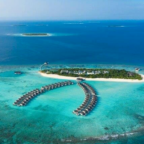
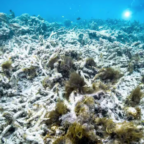
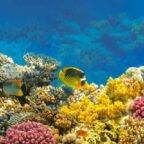
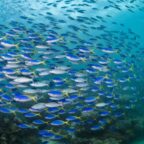

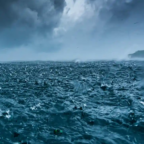
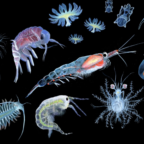
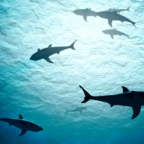

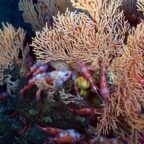
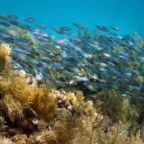
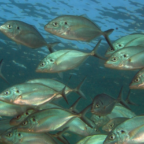


Social Profiles